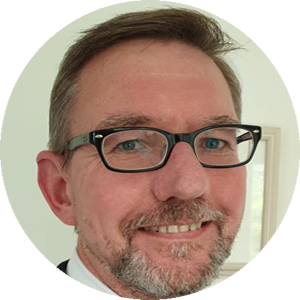


Anupam has earned his PhD in 2010 from Tokyo University of Marine Science and Technology, Japan working on “Characterization of flavour and bio-active components by diverse analytical tools”. His thesis resulted in 10 peer-reviewed publications and a best overseas thesis award from Indian professional society. Since then he had completed several post-docs in Japan (The University of Tokyo; Tokyo University of Marine Science and Technology), China (South China University of Technology), France (Institute of National Research Agricole), Belgium (European Commission; University of Liege in collaboration with Total, France) for about 10 years. Since 2017, he is working at SABIC, Bergen op Zoom, The Netherlands as the Lead Scientist within the Analytical Technology team and focused on CHROM-MS. His academic background and further specialization focused on analytical chemistry, development and validation of analytical methods by various chromatographic techniques coupled with mass spectrometry including high resolution mass spectrometry. His hands on experience in chromatography includes, but is not limited to: GC×GC-HRTOF-MS coupled to different ion-sources and selective detectors, GC-QTOF and GC-MS/MS, GC-MS-O, multi booth GC-MS-8O, SPME, purge & trap GC-MS, heart-cut GC-MS, LC-MS/MS, Orbitrap, QTrap, ESR etc. He also authored/co-authored over 30 articles in peer-reviewed journals as well as book chapters.
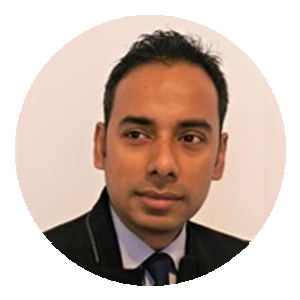
Melissa received her Ph.D. degree in 2007 under the direction of Prof. Luis A. Colón from the Department of Chemistry at the University at Buffalo, NY, USA. She then completed a two year post-doc at Ghent University in Belgium under the direction of Prof. Dr. Pat Sandra. In 2009, Melissa accepted a role a GC Specialist at the Research Institute for Chromatography (RIC) in Kortrijk; she then joined Dow Benelux BV in 2015 in Analytical Science, Core R&D. Her expertise includes liquid chromatography-high resolution mass spectrometry (LC-HRMS, MS/MS), gas chromatography coupled to various detector technologies (GC-FID, GC-MS, GC-(HR)TOFMS, GC-VUV), supercritical fluid chromatography (SFC), and multidimensional chromatography (LCxLC and GCxGC). In her current role, Melissa leads various research projects to advance analytical capabilities and improve the evaluation of natural gas and circular feedstocks.

Principal Research Scientist at National Physical Laboratory, technical lead for emission and carbon measurement scientific area. Expertise in measurement of fugitive emissions from industrial sources including refineries. Long history of working in standardisation, Former Chairman and Quality officer of STA, involved in developing uk methods eg instrumental SO2, Vice Chair of CEN air quality technical committee, Chairman of UK mirror BSI group, EH 2/1, and convenor of CEN TC 264 WG 38 which is currently standardising the measurement of fugitive and distributed emissions of VOCs from refineries.
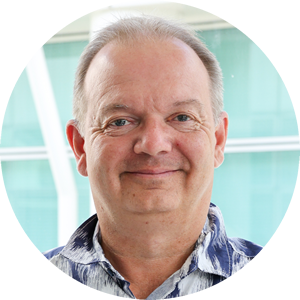
Dr. Frank DAVID received his PH.D degree in 1986 at the Laboratory of Organic Chemistry of the University of Gent under the direction Prof. Dr. M. Verzele. Since October 1986, Frank David is R & D manager at the Research Institute for Chromatography (RIC) in Kortrijk under the direction of Prof. Dr. Pat Sandra. Frank David is author of more than 100 scientific papers in different areas of separation science. His expertise includes capillary gas chromatography, supercritical fluid chromatography (SFC), GC-mass spectroscopy (GC-MS), liquid chromatography (HPLC), liquid chromatography-mass spectroscopy (LC-MS), multidimensional chromatography (GC-GC, GCxGC, LC-GC) and miniaturisation and automation of sample preparation. Frank David is also consultant for instrument manufactures and for industrial laboratories in environmental, petrochemical, food, pharmaceutical and chemical industries. In addition, Frank David is also member of the scientific committee of the HTC (Hyphenated Techniques in Chromatography) symposia and of the organizing committee of ISCC (Riva del Garda, Italy).

Dr Edo Johann Becker obtained his PhD in the field of spectroscopic studies of the polar arctic atmosphere whilst working at the Alfred-Wegener Institute for Polar and Marine Research in Potsdam, Germany. He then spent two years at the Centre for Marine and Atmospheric Sciences in Sunderland investigating the formation of aerosols over boreal and costal areas using particle counters and volatility analysers. Leaving academia in 2000 he started to work for BP Chemicals in Hull for 17 years in diverse areas such as technical product support, development of new catalysts using high-throughput technology and technical coordination of pilot plant programmes, but spent the bulk of his time on the deployment of cutting edge spectroscopic process analytical technology (PAT) for the analysis of liquid, gaseous and solid processes in petrochemical, biofuels and refinery streams. He has also worked on the development of novel process analytical tools, like the use of non-invasive ultrasonic process analysers. He has published or is co-author on several papers and is named as the inventor on 4 patents in the area of chemical engineering and process analysis.
Edo Becker currently works as a technical consultant for the application of PAT in the manufacturing industry in Hamburg, Germany.
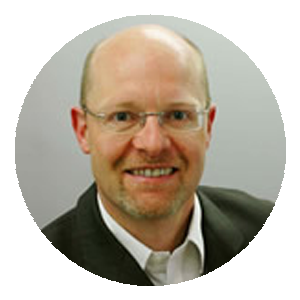
Prof. Ralf Zimmermann received his Ph.D. degree in 1995 from the Technical University Munich (TUM), Germany. He moved as post-doc to the GSF Research Centre for Environment and Health in Oberschleißheim, Germany and the University of Antwerp. From 2001 to 2008 Zimmermann was appointed as Associated Professor of Analytical Chemistry at the University of Augsburg as well as head of the Chemistry Department of the bifa-Environmental Institute in Augsburg. Since 2008 he is Full Professor of Analytical Chemistry at the University of Rostock (UR) and in personal union head of the Department "Comprehensive Molecular Analytics" (CMA) at the Helmholtz Zentrum München (HMGU). His research interests are in the field of the physical properties, organic composition as well as biological- and health-effects of anthropogenic aerosol emissions and ambient aerosols. The instrumental on-line and off-line analysis of the chemical signature of complex molecular mixtures such as petrochemical matrices or environmental samples using high resolution Mass Spectrometric (MS) approaches, comprehensive chromatographic and thermal analytical techniques as well as novel photo ionisation based MS tools are further focal points of his research interest. Since 2012 Zimmermann is leading the Virtual Helmholtz Institute “HICE-Aerosol and Health”, which is addressing the composition, biological effects and health implications of combustion aerosol emissions in the framework of an international cooperation network and from 2019 on, he is heading the Helmholtz International Lab aeroHEALTH. Within aeroHEALTH, the HMGU, the Forschungszentrum Jülich (FZJ) and the Weizmann Institute of Science in Israel are investigating within a joint long-term initiative the impact of photochemical ageing and atmospheric processing of aerosol emissions and ambient air on human health.

Marcel received his MSc in Chemistry from University of Utrecht where he studied metal-mediated organic synthesis and heterogeneous catalysis, and his PhD in organometallic chemistry from the University of Amsterdam. Marcel has previous work experience at Unilever, Hercules and RIKILT Institute for Food Safety and joined Dow Core R&D Analytical Sciences in 2007 where he provided advanced problem solving using (high end) NMR, MS and separation techniques in support of R&D and manufacturing activities. Marcel has (co)authored several papers and patent. Marcel has hands on experience in NMR (1D, 2D); liquid chromatography coupled to high resolution mass spectrometry (LC-MS; MS/MS); SEC-MS(/MS); GC-MS (Including a wide variety of introduction techniques). In his current role, Marcel participates and leads multidisciplinary teams that uses the fundamentals of science and engineering to solve difficult, often multi-root cause problems in R&D scale up and plant operations.
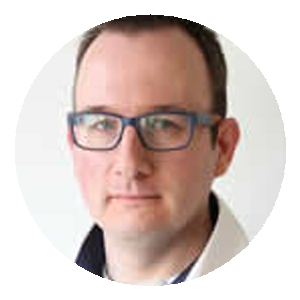
Pierre obtained his PhD in 2006 from University of Pau et des Pays de l’Adour, France, in Analytical Chemistry. Prior to that he got masters degree from University of Singapore in 2002. He also completed Habilitation (HDR) from Rouen University, France. He is co-founder and scientific coordinator of the International Joint Laboratory i-C2MC (Complex Matrices Molecular Characterization), involving 35 scientists from TOTAL - CNRS – Rouen Univ. – Pau Univ. – Florida State Univ. He chaired the 18th Petrophase Conference, 2017, Le Havre, France. Co-supervised research for 8 Post Docs, 5 PhDs, 7 Masters. Represented more than 50 conferences (talks and posters) / 8 invited oral/ international communications. Authored 36 publications in international peer-reviewed journals, and 3 patents. His expertise is not limited but to different aspects of molecular separation sciences, mass spectrometry, complex matrices analysis, analytical strategy in the field of refining, petroleomics and environmental science, instrumental development in analytical chemistry.
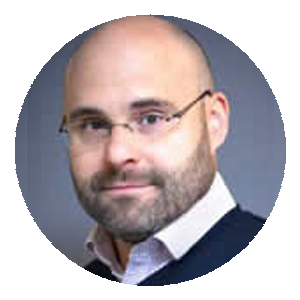
In 2007, Senthil obtained his PhD from University of Siegen, Germany for his work "Characterization of physical properties of polymers by AFM force-distance curves" carried out at Federal Institute for Materials Research and Testing (BAM), Berlin. He then worked at Borealis Innovation Headquarters in Austria and Goodyear Innovation Center, Luxembourg developing combinatorial use of various morphological characterization and spectroscopic techniques to support development of polyolefins and tires. Since 2013, he is working on developing thermal analysis and spectroscopic methods for polyolefins characterization at Borouge Innovation Center Abu Dhabi, UAE to improve structure-property relationships. He has published 5 scientific journal articles and holds 5 patents. Besides analytical method development and implementation, he is passionate about HSE and laboratory efficiency improvement programs.
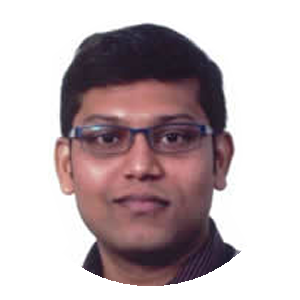
Dr. Christopher P. Rüger received his Ph.D. degree in spring 2018 with distinction (sum cum laude) from the University of Rostock, Germany. In the framework of his Ph.D. work, he did an internship at the University of Warwick, United Kingdom, working together with Prof. Peter O’Connor and Dr. Mark Barrow on the analysis of asphaltenes originating from extra heavy crude oils supplied by Schlumberger. For his PostDoc from 2018-2019, he went to the University of Rouen, France, working in the group of Prof. Carlos Afonso on ion mobility and high-resolution mass spectrometry, performing joint projects on prototype grade instrumentation together with Bruker Corporation and Waters Corporation. During this time, he worked closely together with Dr. Pierre Giusti (Total) and became a satellite member of the International Joint Laboratory i-C2MC (Complex Matrices Molecular Characterization). Since fall 2019 he is junior research group leader for high-resolution mass spectrometry (habilitation candidate) at the University of Rostock with a current team of five Ph.D. students. His research interests are in the development of mass spectrometric techniques for the chemical description of complex organic mixtures together with comprehensive data processing strategies. Further focal points of his research interests are thermal analysis strategies, photoionization schemes, as well as applicative challenges in petroleum sciences and the circular economy (recycling oils, recycling strategies for composite materials).
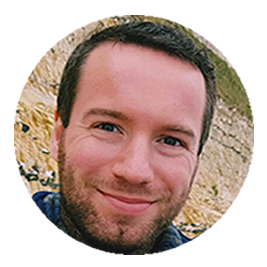
Anton Ginzburg received his MSc degree in chemistry from Moscow State University in 2008 and then attended Technical University of Darmstadt, where he received his PhD in Macromolecular Chemistry in 2012, working on multi-dimensional chromatographic separations of synthetic polymers. The project was done within a framework of Dutch Polymer Institute. In the same year, he moved to a petrochemical industry (SABIC) to join a start-up of high-throughput experimentation (HTE) laboratory as a research scientist, where he worked on setting up and developing an integrated and highly automated experimental workflow. Working at the interface between polyolefin catalysis and polymer material development, he delivered on a large variety of research and business development projects, and strengthened company’s intellectual property position with 5 patents. He has coauthored 10 peer-reviewed scientific publications and regularly delivered oral presentations at international scientific conferences. As of October 2020, he has been appointed as an Assistant Professor in the division of Soft Matter Rheology and Technology at the Chemical Engineering Department at KU Leuven. His main research interests are new polymeric materials, polymer molecular separations, polymer rheology and HTE.
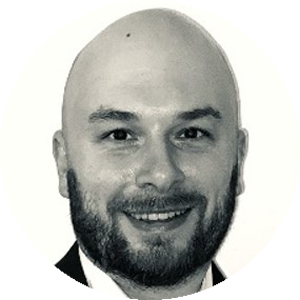
Vincent obtained his PhD in physical chemistry from ENS Cachan in 2007 for his work on "Molecular engineering and fluorescence for the detection of toxic cations". He has been working since 2009 as a research engineer in IFPEN in the Physics and Analysis Division and was head of IFPEN Gas Chromatography laboratory from 2012 to 2016. His research work mainly focuses on the detailed characterization of complex samples derived from crude oil or coming from the transformation of biomass or plastics. It includes the development of comprehensive bidimensional gas chromatography methods (GCxGC) with different type of modulation systems or detectors (SCD, FID, NCD, MS, VUV, etc.) and the development of dedicated data treatment tools.
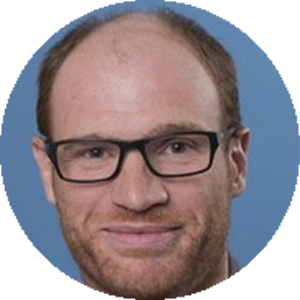
Beate received her Ph.D. in 2016 from the University of Rostock (Germany). Her practical work focused on the application of multi-dimensional gas chromatography in the field of volatolomics and was carried out in the cooperation group ‘Comprehensive Molecular Analytics’ at the Helmholtz Zentrum München (HMGU, Germany). She then worked as post-doctoral researcher in Belgium (Organic & Biological Analytical Chemistry, University of Liège) and the Unites States (Department of Biochemistry and Molecular Biology, Pennsylvania State University), followed by a position as research scientist at the Research Institute for Chromatography (RIC, Belgium). In 2019, Beate joined the Competence Center Analytics at BASF SE (Germany). Her expertise includes capillary gas chromatography coupled to various detection technologies (GC-FID, GC-MS, GC-VUV, GC-TEA, GC-EPED, etc.), multidimensional gas chromatography (GC-GC, GCxGC) and miniaturized sample preparation (SPME, NTME, TFME, SBSE, etc.) for trace analysis of volatile organic compounds.
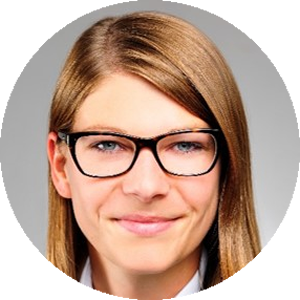
From 1997 to 2000 Carlos Afonso did is PhD work in the French CBRN defence laboratory on mass spectrometry under the supervision of Pr Jean Claude Tabet. He joined in 2000, the mass spectrometry group of Pr Catherine Fenselau at the University of Maryland in College Park working in development of mass spectrometry for the characterization of microorganisms. He obtained in 2002 a CNRS research scientist permanent position in the mass spectrometry group of Pr. Jean Claude Tabet at the University Pierre and Marie Curie (Paris 6) scientist working on Fourier transform mass spectrometry (FTICR MS) and ion activation.
He was appointed Professor of analytical chemistry at the University of Rouen-Normandy in 2011 and took the lead of the chemistry department separation science and mass spectrometry group. Since then he was mainly involved in the development of new methodologies for the characterization of highly complex mixtures related to energy and environment based on ion mobility-mass spectrometry and FTICR MS. His group is part of the national CNRS network of FTICR MS with the recent acquisition of a 12 teslas instrument that is the highest field in France.
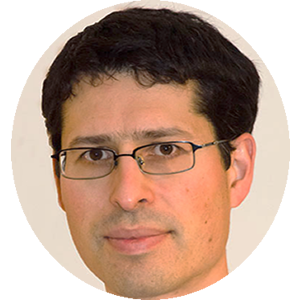
Pierre-Hugues Stefanuto is lead scientist and lecturer at Liège University in Belgium. His main research interest is the development of analytical solutions based on chromatography and mass spectrometry technology. He has developed a strong expertise in multidimensional methods to increase resolution power. He is interested in the development of statistical models for method optimization and data handling. He is working on the development on multimodal solutions of untargeted screening of small molecules.
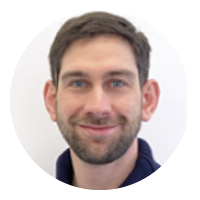
Geoff Chappell graduated from the University of Teesside in 1993. He has worked in the petrochemicals industry for over 30 years, initially focusing on process analysis and its relationship with plant operations. For many years, he led SABIC’s analytical service in Teesside, UK. More recently, he has focused on process chemistry issues across SABIC’s operations around the world, looking at how the application of analytical techniques can help solve process chemistry issues and add value to plant operations.
